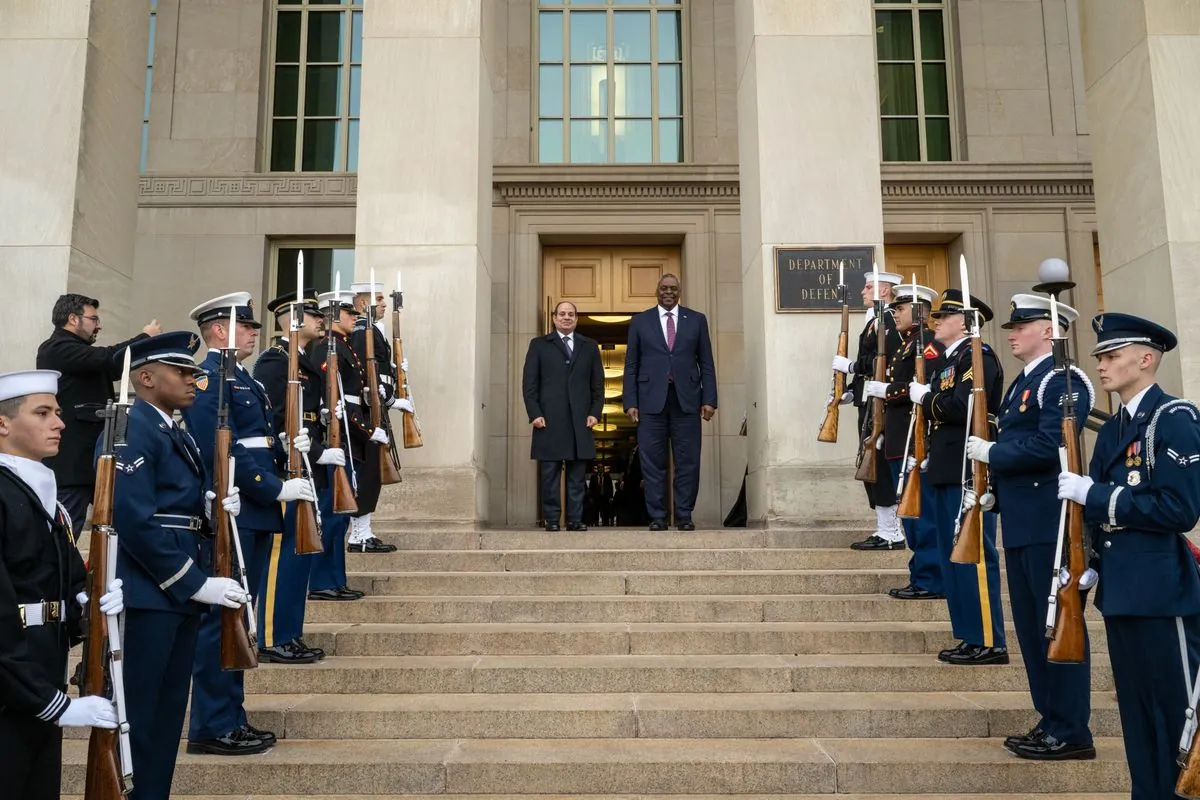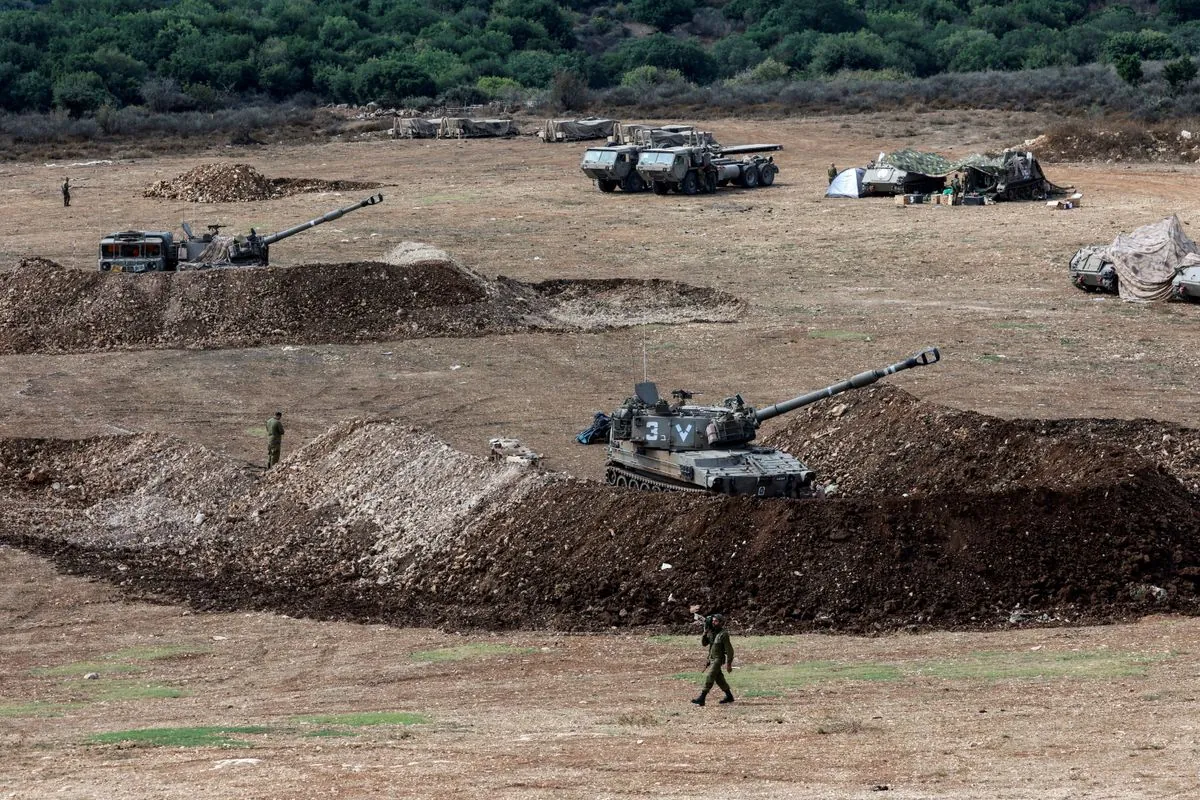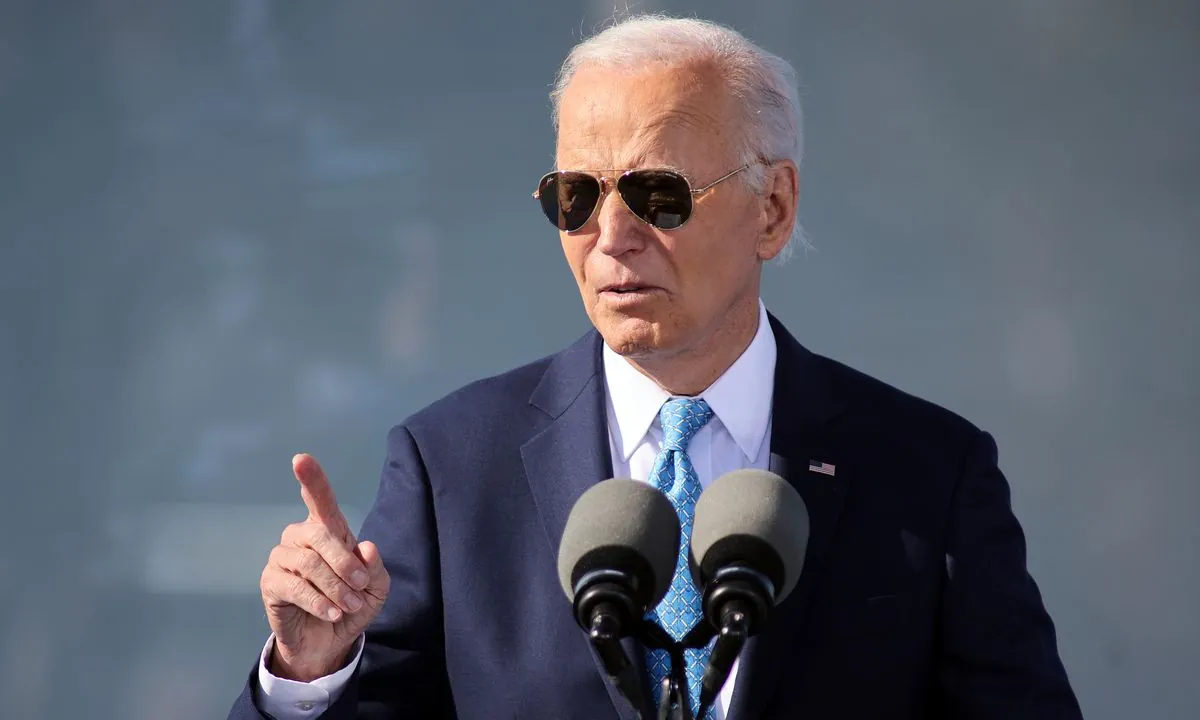Egypt's Sisi Warns US General of Lebanon Conflict Risks Amid Regional Tensions
Egyptian President Sisi cautioned US General Brown about potential Lebanon conflict. Amid escalating Israel-Hezbollah clashes, international efforts focus on de-escalation and Gaza ceasefire negotiations.

In a recent meeting, Egyptian President Abdel Fattah al-Sisi expressed concerns to U.S. Air Force General C.Q. Brown about the potential for a major conflict in Lebanon. This discussion took place against the backdrop of escalating tensions between Israel and Hezbollah, highlighting the fragile state of regional security.
The meeting occurred approximately one year ago, on August 25, 2023, following a significant exchange of missiles between Israel and Lebanese Hezbollah. This incident marked one of the largest clashes in nearly a year of border warfare at that time. Egypt, known for its role as a key mediator in Israeli-Palestinian conflicts, emphasized the need for international efforts to defuse tensions and prevent further escalation.
President Sisi stressed the importance of preserving Lebanon's stability and sovereignty. Lebanon, with its complex political system based on confessionalism, has long been vulnerable to regional conflicts. The Egyptian leader's warning underscores the potential for a new front opening in Lebanon, which could have far-reaching consequences for the entire region.

In response to these growing tensions, the United States had been bolstering its military presence in the Middle East. The deployment of the Abraham Lincoln aircraft carrier strike group, one of the largest warships in the world, along with F-22 Raptors and a cruise missile submarine, demonstrated the U.S. commitment to regional stability.
The ongoing conflict in Gaza, which had been raging for 11 months at the time of the meeting, had already caused significant civilian casualties and infrastructure damage. Efforts to negotiate a ceasefire between Israel and Hamas were underway in Cairo, with international mediators working to broker a deal.
"The international community needs to exert all efforts and intensify pressures to defuse tension and stop the state of escalation that threatens the security and stability of the entire region."
The situation was further complicated by Iran's vow to respond severely to the killing of Hamas leader Ismail Haniyeh in Tehran, which occurred in late July 2023. This threat added another layer of complexity to the already volatile regional dynamics.
As these events unfolded, the Red Sea, a critical shipping route connecting Europe and Asia, faced disruptions due to attacks by Yemen's Houthis. This development highlighted the interconnected nature of conflicts in the Middle East and their potential global impact.
The meeting between President Sisi and General Brown underscored the urgent need for diplomatic solutions to prevent the escalation of conflicts in Lebanon and the broader Middle East. As tensions continue to simmer, the international community remains focused on efforts to promote stability and peace in this strategically important region.


































